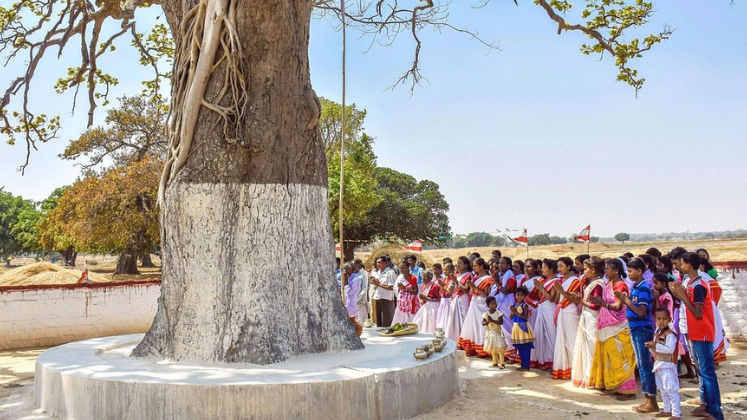In the world of Islamophobia hate crime research, Shiaphobia remains unaddressed, particularly in the digital realm. In this article Michael Dhanoya shares some insights into manifestations of Shiaphobia on gaming platforms.

Islamophobic hate crime research is outdated.
Previous studies highlight that such hate manifests in both the physical and cyber realms. Regarding the former, hate frequently occurs in areas with high levels of pedestrian traffic, such as in and around public areas and public transportation hubs. Regarding the latter, research focuses on manifestations of Islamophobic hate on social media platforms, notably X and Facebook. An emphasis on such spaces ignores the fact that expressions of hate manifest across other areas of cyberspace, such as online gaming platforms.
PlayStation Network and Xbox network provide an online gaming service for their respective 100+ million users worldwide. Such platforms connect gamers across cyberspace, enabling them to converse in real-time with one another as they partake in multiplayer games. Whilst intended to enhance the enjoyment of the gaming experience, the in-game chat feature of these gaming services has facilitated expressions of hate. Individuals suffer racism, heterosexism and Islamophobia (loosely defined as religiously-motivated hate perpetrated by non-Muslims against Muslims) from their co-gamers online. Yet, manifestations of Shiaphobia (religiously-motivated hate perpetrated by Sunnī Muslims against Shīʿa Muslims) on PlayStation Network and Xbox network remain invisible. This article reveals the Shiaphobic language expressed on these platforms, before outlining some of the challenges to eradicating manifestations of this phenomenon from the gaming realm of cyberspace.
Shiaphobia on online gaming platforms
The Sunnī-Shīʿa divide traces back to the death of the Prophet Muḥammad in 632 CE, by which time much of the Arabian Peninsula was under Muslim control. Thus, the schism emerged over who would be the next leader of the Muslim community and ruler of the burgeoning Islamic nation. Some Muslims believed that before his passing, Muḥammad appointed ʿAlī ibn Abī Ṭālib as his successor, while others opined that the Muslim community was left to elect its new leader. Muḥammad was eventually succeeded by Abū Bakr, ʿUmar ibn al-Khaṭṭāb and ʿUthmān ibn ʿAffān before ʿAlī became ruler. The Muslims who accepted the leadership of all four men after Muḥammad became the Sunnī Muslims, whilst those who recognised ʿAlī alone became the Shīʿa Muslims. The sectarian ramifications of these historical events lie at the heart of what is unfolding across online gaming platforms.
First-hand engagement with Britain’s Shīʿa Muslims has uncovered the nature of the Shiaphobic abuse experienced when interacting with co-gamers on PlayStation Network and Xbox network respectively. The abuse targets publicly identifiable Shīʿa Muslims, such as those whose online profile picture depicts the Iranian or Iraqi flag (with both nations being Shīʿa Muslim majority states) or images of Shīʿa pilgrimage sites in either country. Moreover, Sunnī and Shīʿa Muslims often name their children after figures in Islamic history revered in each sect. Some victims believe that their online Shiaphobic experiences result from their sharing their distinctly ‘Shīʿa name’ online.
Shīʿa women are linguistically profiled by their co-gamers, resulting in the latter correctly identifying the former as female. This profiling leads to the former suffering misogynistic abuse, such as being called ‘c**t’, ‘s**g’ and ‘Shīʿa sk*t’. Moreover, threats of sexual violence (i.e. drug-facilitated sexual assault, rape and gang rape) are aimed at female Shīʿa gamers, their female family members and the female family members of male Shīʿa gamers. Evidently, Shīʿa women are sexually objectified across both gaming platforms.
Iranian victims suffer racist abuse when branded as ‘Majus’. During the Iran-Iraq War (1980-1988) Saddam Hussein—then President of Iraq—popularised the term as part of his anti-Iranian rhetoric. Referring to Zoroastrianism (the state religion of the Sasanian Empire), ‘Majus’ alludes to Iran’s pre-Islamic history, thus subtly questioning Iranian citizens in their adherence to Islam. Use of the term is akin to use of the ‘N’ or ‘P’ words in Western parlance, thus highlighting the racial sentiment behind said term. Similarly, the term ‘Safavi’ (referring to the conversion of the Iranian plateau from Sunnī to Shīʿa Islam under the Safavid dynasty) is used indiscriminately against victims, irrespective of their ethno-national heritage. Patently, victims experience multiple forms of hate in a single incident as several elements of their identity intersect in the mind of the perpetrator, who thus deems the victim an ideal target for abuse. Consequently, rather than seeing various forms of hate (such as misogynistic, racial and religious) as independently functioning phenomena, they ought to be understood as comprising an interlocking web of mutually reinforcing systems of subordination.
Hateful rhetoric also focuses explicitly on the origins of the Sunnī-Shīʿa schism. Indeed, Shīʿa Muslims are routinely labelled as ‘Rāfiḍah’ (those who reject) in reference to the Shīʿa rejection of the first three leaders of the Muslim community after Muḥammad’s passing. Whilst theologically and historically accurate, ‘Rāfiḍah’ is a contemporary pejorative colloquialism for the view held within Sunnī Muslim circles that Shīʿa Muslims are disbelievers. Relatedly, victims are branded as ‘Mulḥidun’ (heretics). Finally, along with being dehumanised and demonised when referred to as ‘Kutta’ (the Punjabi and Urdu word for dog) and ‘Shayāṭīn’ (demons), victims often receive death threats while participating in online multiplayer games.
Shiaphobia unchallenged
Both PlayStation Network and Xbox network have safety protocols in place to protect gamers. Indeed, gamers can report those who make abusive and offensive comments, which may result in the perpetrator’s account on either platform being suspended. However, such protocols merely create distance between victims and abuse after the hate has manifested. As they have not implemented measures that prevent the initial occurrence of Shiaphobic rhetoric, gaming platforms can be accused of not tackling hate head-on.
Moreover, that Shiaphobia goes unrecorded in official hate crime statistics evidences that discussions on the presence of and combatting Islamic sectarianism are absent within law enforcement and governmental spaces. Online gaming platforms can still be legitimately criticised for enabling individuals to spout religiously-motivated hate towards their co-gamers. Yet, companies involved in the gaming industry may not feel incentivised to explicitly address the Shiaphobic abuse expressed on their platforms, given that Shiaphobia is demonstrably not on the policing or political agenda.
One may question whether UK legislation regulates gaming platforms. Promoted as making UK cyberspace the safest in the world, the Online Safety Act 2023 (OSA 2023) requires companies with a digital presence classified as ‘Category 1 services’ under the Act to protect individuals from experiencing abuse targeting those strands of identity protected under the Equality Act 2010, including religious identity. A decision on which companies will receive ‘Category 1’ classification will not be made until April 2024, at the earliest. As this article reveals manifestations of Shiaphobia on PlayStation Network and Xbox network, an optimist may argue that granting gaming platforms ‘Category 1’ classification will protect Shīʿa Muslims from suffering Islamic sectarianism. This notion can be challenged. Various nations and supranational entities have passed legislation that seeks to regulate cyberspace. However, as online gaming is a global phenomenon, it is unclear which nation’s legislation protects victims if the perpetrator resides in a different country. The uncertainty regarding the jurisdictional limits of such legislation (including the OSA 2023 and its requirements for ‘Category 1 services’) illustrates the futility of ‘policing’, let alone ‘legislating’ transnational spaces, including the online gaming world.
The message is clear. Unless such challenges are overcome, the gaming realm of cyberspace will remain a hotbed of Shiaphobic hate.
Photo by Jezael Melgoza on Unsplash




